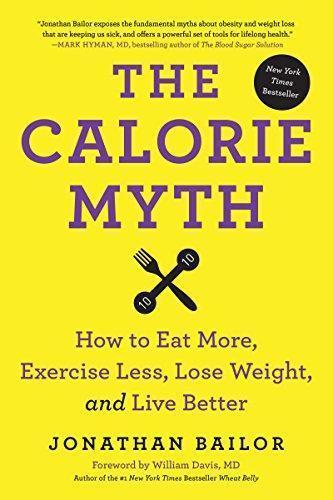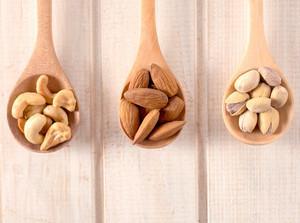9 Easy Ways to Improve Your Gut Health
We can’t see or feel it. But inside our gastrointestinal tract (aka the gut) lives an interconnected system of microorganisms totaling approximately 100 trillion cells housing up to 2000 types of bacteria [1].
What’s incredible is that this invisible colony living inside our guts, which also includes fungi (yeast) and viruses too, collectively weighs about the same as our brain at approximately 3 pounds.
Bacteria conjure up feelings of wickedness, but most of the bacteria in our guts are there to help us. In fact, this network of “good bugs” makes up 70-80% of our immune system and is our frontline defense against harmful pathogens and microbes.
The microorganisms from this complex system, known as the “gut microbiome,” primarily live in the large and small intestine, but we can also find them in other parts of the body, including in the nose, mouth, and skin. And they have a variety of complex effects on our health.
Not only do they reduce the pH of our guts to make it more unfavorable to bad microbes, but many also secrete antimicrobial compounds and block them from receptor sites in the gut. [2]
Referred to as probiotics, beneficial bacteria are an important part of our microbiome where they:
Whoa!
When gut conditions aren’t ideal for the beneficial bacteria, the bad guys can crowd out the good.
Known as dysbiosis, this can cause a cascade of health issues and unpleasant symptoms, including digestive upset. [8]
The good news is that there are certain things you can do to keep the good bacteria in your gut flourishing so you can get the benefits they provide.
💡 Keep reading to learn how Flora probiotics can give your gut health a boost and lay the foundation for optimal digestion.
Here are 9 Easy Ways to Improve Your Gut Health!
One of the easiest ways to improve your gut health is to focus on eating more fresh fruits and veggies in your diet. Besides fruits and veggies, other plant-based foods, including nuts, seeds, and legumes, are gut-friendly too.
Fruits and veggies are chock full of vitamins, minerals, healthy fats, and antioxidants like polyphenols that fuel our cells and promote a healthy gut lining.
Plant-based foods are also rich in prebiotics; types of fiber, resistant starch and complex carbohydrates that our bodies can’t digest, but our gut bacteria happily feed on for fuel, which helps them flourish, while providing us with benefits that make our guts healthier.
How?
After breaking down prebiotics through the process of fermentation, our gut flora then produces types of fats called short-chain fatty acids (SCFA).
SCFAs have several beneficial roles in the body, including: [9]
Foods rich in prebiotic fiber may also help to improve our overall metabolism. [11]
Gut-friendly foods that encourage your friendly gut bacteria to flourish include:
Get more of these foods in your diet for optimal gut health:
When measuring most vegetables, a serving is equal to what would fill a one-cup measuring cup. For raw leafy greens, a serving is more like 2 cups.
If you have a hard time getting more plant-based foods in your diet, try meal planning to get your 5 servings of fruits and veggies a day.
Medications can’t always be avoided. But many drugs can affect the health and composition of our microbiome. One study that analyzed 28 drugs found that drugs including antibiotics, laxatives, and proton pump inhibitors used to treat ulcers, can effectively wipe out our beneficial gut bacteria, leaving us susceptible to infection and disease. [12]
Another study published in the journal Microbiome, found the anti-inflammatory pain reliever (NSAID), Ibuprofen, can have the same negative effect on our gut flora as antibiotics. [13]
A diet high in refined sugar, like white sugar and high-fructose corn syrup, can have a negative effect on the composition of good bacteria while encouraging the proliferation of bad microbial actors in the gut. Not only can too much sugar cause weight gain, blood sugar imbalances, cravings for more sugar, and yeast infections, but the digestion of sugar by bad microbes can also cause bloating and cramps. [14]
Recent studies have discovered that sugar can also lead to a “leaky gut,” a condition where the lining of the gut becomes compromised, allowing large undigested food particles and toxins to pass through into the bloodstream. This can lead to inflammation in the body, allergies, and auto-immune disorders. [15]
Cutting out all sugar can be difficult. So simply enjoy sweet treats in moderation instead. And always check food labels for hidden sources.
Avoiding sugar is good for your gut. But if you’re turning to artificial sweeteners like saccharin to fix your sweet tooth, think again. Even though artificial sweeteners technically have zero calories, recent studies suggest they may negatively alter the gut, which can ultimately lead to weight gain, poor glucose metabolism, and in severe cases insulin resistance. [16]
For baking sweets without the sugar, choose healthy and natural sugar-free sweeteners like erythritol or allulose.
Fermented foods are foods that have had their sugars and carbohydrates broken down into an acid or alcohol by microorganisms, including certain types of harmless yeast and beneficial bacteria. [17] A tasty way to preserve food while boosting its nutrient content, fermentation has been in practice for thousands of years.
Studies suggest that some of the many ways these foods may support overall health include [18] :
Eating a variety of fermented foods can consistently introduce beneficial probiotics to our guts to improve gut health.
Fermented foods rich in beneficial foods rich in probiotics include:
Fermented foods are usually stored in the refrigerated section of the grocery store and should show on the label if there are live cultures inside.
While beverages like beer and wine are made via fermentation, they are usually pasteurized to remove bacteria and create a shelf-stable commercial product.
Yogurt is one of the most accessible and popular fermented gut-friendly foods that is easy to work into your daily diet. It can be used alone, topped with fruit and nuts, added to protein shakes, or used in place of sour cream or mayo.
Many studies have shown that eating yogurt regularly may improve intestinal bacteria diversity and may even help with lactose intolerance (19, 20).
Be sure to skip sugar-laden varieties. Instead, opt for plain yogurt and naturally sweeten it yourself instead with fresh fruit and a drizzle of Manuka honey.
Did you know that stress and the hormones it triggers may also affect the health of your gut microbiome? Research has shown that even short bouts of stress can negatively change the composition and number of beneficial bacteria in the gut while weakening its barrier and leaving it vulnerable. [21]
A few ways you can reduce stress to improve gut health and well-being include:
So next time you go to relax, know you’re doing something good for your gut health.
Spending time outside can reduce stress levels and improve your sense of well-being. It may be good for your gut health as well.
A few recent studies found evidence that individuals who spend more time in nature or live in rural areas more often have better microbial diversity, more beneficial gut bacteria, and better gut health than city dwellers. [22]
Gardening can also be a great way to improve the diversity of your gut bugs.
Every day our bodies are bombarded with a variety of environmental and harmful chemicals in the air and water. But they are also lurking in our food, skincare, toiletries, and homes. Pollutants like pesticides and heavy metals can have a negative effect on our gut health and the beneficial bacteria in our guts. [23]
Eliminating them completely will never be possible. Some things you can do to reduce exposure is to:
A healthy plant-rich diet is the foundation of a healthy gut. But taking a daily probiotic can promote gut health in an intensive and convenient way. When traveling, don’t leave home without them.
Some of the most well-studied and beneficial groups of bacterial strains included in probiotic formulas include Lactobacillus and Bifidobacterium.Different strains within these families of beneficial bacteria have their own unique effects on the body. For example, one type of Lactobacillus probiotic can have different benefits than another. {24]
Probiotics are measured in CFUs (colony forming units), and often fall between 1-100 billion, denoting how many of the good guys are in the probiotic at the time of manufacture. While it’s mostly believed the higher the CFUs, the better the probiotic, recent studies show that the quality of the strains inside your probiotic can be more important than looking at the number of strains alone. [25]
When choosing a probiotic supplement, it’s best to choose a formula that:
The probiotic formulas from Flora are designed based on science, contain clean ingredients, and are formulated to survive stomach acid so the probiotics you need can get into your gut intact.
Flora probiotics contain a balanced combination of strains to help promote balanced gut health support for your specific needs.
Based 100% on science, Flora probiotics are :
Find a Flora Probiotic formula that’s right for you!
Right now, the code PROBIOTICS15 for 15% off all Flora Probiotics at florahealth.com now through 6.27.22.
This content was originally published here.



















